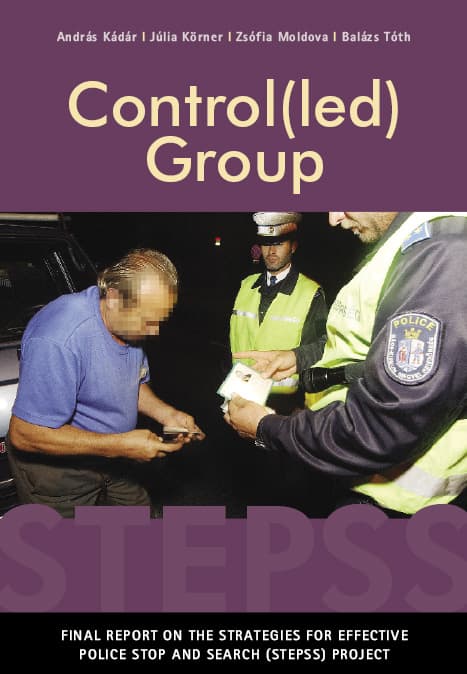Strategies for Effective Police Stop and Search (STEPSS) project (2007-2008)
ID check is the most frequently used police measure in Hungary: on average, more than 1.5 million checks have been conducted in recent years. However, the practice of ID checks has not been analyzed so far. Therefore, the Hungarian Helsinki Committee sought to assess the typical grounds of ID checks and the efficiency of this police measure in the framework of a project financially supported by the European Commission’s AGIS Program and the Open Society Institute. It was also examined whether there is a discriminatory tendency regarding ID checks, namely if members of the Roma minority are ID checked in unjustified and disproportionate numbers compared to their non-Roma peers.
Translation is available for this content
Váltás magyarra
 Ethnic profiling is defined as the law enforcement practice of using racial, ethnic, or religious stereotypes when making decisions on whom to stop, search, verify identification documents, or take any other measures; and it assumes that these characteristics will help predict which people will be involved in particular crimes. This approach is a form of discrimination and unlawful according to international and European law. The European Commission against Racism and Intolerance recommends that every member state “clearly define and prohibit racial profiling by law”.
Ethnic profiling is defined as the law enforcement practice of using racial, ethnic, or religious stereotypes when making decisions on whom to stop, search, verify identification documents, or take any other measures; and it assumes that these characteristics will help predict which people will be involved in particular crimes. This approach is a form of discrimination and unlawful according to international and European law. The European Commission against Racism and Intolerance recommends that every member state “clearly define and prohibit racial profiling by law”.
Within the framework of the STEPSS project ethnic profiling was scrutinized in three countries: Spain, Bulgaria and Hungary. The aim of the project was to elaborate a new model of stop and search practices by training police officers, giving operational and legal guidance, and by the supervision of ID checks, stops and searches, involving members of minority communities. The goal was to create a monitoring system that enhances police management and accountability of stops; and to increase the capacity of minority communities to participate in dialogue with the police and set local policing priorities, and to generate and test a replicable model of good practice that can be disseminated.
In Hungary, a research/action approach was used in the development of new practices in pilot sites. For the purposes of the research, an emphasis was put on wide-range data collection on the ethnic aspects and general efficiency of ID checks (ID-check data broken down by ethnicity has never been collected in Hungary before). As for the action element, police officers were trained on the definition and relevant aspects of ethnic profiling, with special instruction focused on its disadvantages (the notion is practically non-existent in the education of police officers or in the wider public). Since in Hungary the Roma community is the largest minority, their representatives were involved in the project, which was also aimed to develop links between local Roma communities and the police.
The implementation of the STEPSS project in Hungary was reliant on close cooperation between three project partners: the Hungarian Helsinki Committee, the National Police Headquarters, and the Hungarian Police College.
Funded by: European Commission AGIS Program, Open Society Justice Initiative,Open Society Institute Budapest Foundation
***
Control(led) Group – Final report on the Strategies for Effective Stop and Search (STEPSS) Project
The Rules and the Practice of ID Checks and their Role in the Training of Police Officers in Hungary – Overview
“I Can Stop and Search Whoever I Want” – Police Stops of Ethnic Minorities in Bulgaria, Hungary and Spain